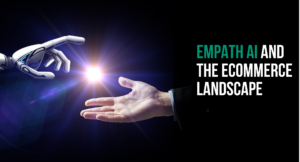Welcome to the era where AI is transforming the landscape of content creation. Content planning is a significant part of any business. However, the traditional methods of brainstorming ideas, conducting keyword research, and scheduling content can be time-consuming. With Artificial Intelligence (AI), content planning has been revolutionised, offering marketers unprecedented insights, efficiency, and scalability.
Let’s delve into the world of content planning and explore how ChatGPT can revolutionise this crucial aspect of digital marketing.
Understanding Content Planning
What is Content Planning?
Content planning involves the strategic process of outlining, creating, and distributing content to achieve specific marketing goals. It encompasses brainstorming ideas, researching topics, and crafting compelling narratives tailored to target audiences.
Why is Content Planning Important?
Effective content planning sets the foundation for successful marketing campaigns. It ensures coherence in messaging, aligns with brand objectives, and maximises audience engagement, ultimately driving traffic and conversions. It also plays a significant role in your digital marketing plan, which is fundamental for any ecommerce business.
Challenges in Content Planning
Content planning is essential for ecommerce businesses to engage with their target audience and drive sales effectively. However, navigating the complexities of content creation can be daunting, presenting several challenges along the way.
Lack of Direction
One of the most significant hurdles businesses face in content planning is a lack of clear direction. Without a well-defined strategy and content objectives, businesses may aimlessly create content that fails to resonate with their audience. This lack of direction can result in wasted resources and missed opportunities to connect with potential customers.
Why it’s important for ecommerce businesses:
Clear content objectives are crucial for ecommerce businesses to align their content with their overall marketing goals. Whether increasing brand awareness, driving website traffic, or boosting sales, having a solid content strategy ensures that every piece of content serves a purpose and contributes to the bottom line.
Inconsistent Messaging
Maintaining a consistent brand voice across various channels and platforms is another common challenge in content planning. Inconsistencies in messaging can confuse consumers and dilute brand identity, leading to disengagement and loss of trust.
Why it’s important for ecommerce businesses:
Consistency is key to building brand recognition and fostering customer loyalty. Ecommerce businesses rely heavily on establishing a solid brand identity to differentiate themselves in a competitive market. Consistent messaging ensures that customers have a cohesive experience across all touchpoints, from social media posts to product descriptions, reinforcing brand values and driving conversions. Check out Episode 3 of Tribe Talks on Omnichannel Retail Strategy and Customer Loyalty.
Content Fatigue
In today’s fast-paced digital landscape, content creators often experience burnout due to the ever-increasing demand for fresh content. Without the right tools and resources, sustaining creativity and producing relevant content regularly can be exhausting, leading to diminished quality and engagement.
Why it’s important for ecommerce businesses:
Content fatigue can negatively impact ecommerce businesses by hindering their ability to attract and retain customers. In a competitive market with short attention spans, businesses must continuously deliver engaging and valuable content to stay top-of-mind. Overcoming content fatigue requires innovative solutions and strategic planning to ensure content remains fresh, relevant, and impactful. Addressing these challenges in content planning is essential for ecommerce businesses to stay competitive and effectively reach their target audience. By establishing clear objectives, maintaining consistent messaging, and combating content.
Role of AI in Content Planning
Content Ideation
AI-powered tools leverage advanced algorithms to analyse vast amounts of data from various sources, including social media, search engines, and industry trends. By mining this data, AI can generate valuable insights regarding popular topics, emerging trends, and audience interests. These insights serve as a springboard for content ideation, enabling marketers to develop relevant and engaging topics that resonate with their target audience.
Data Analysis
In addition to ideation, AI excels in data analysis, providing marketers with actionable insights to inform their content strategy. From sentiment analysis to competitor benchmarking, AI algorithms can process and interpret data more efficiently than human analysts. This allows marketers to make data-driven decisions regarding content themes, formats, and distribution channels, ultimately maximising the impact of their content efforts.
Scheduling
Furthermore, AI streamlines the content scheduling process by automating repetitive tasks and optimising publishing schedules. AI-powered content calendar tools analyse various factors, such as audience engagement patterns, peak traffic times, and social media trends, to recommend the optimal times for publishing content. This ensures that content is delivered to the right audience at the right time, maximising its visibility and impact. Check out the Digital Marketing Automation tools.
Introducing ChatGPT for Content Planning
What is ChatGPT?
ChatGPT is an advanced AI language model developed by OpenAI. It leverages state-of-the-art natural language processing techniques to generate human-like text based on input prompts.
How Can ChatGPT Assist in Content Planning?
ChatGPT, powered by advanced artificial intelligence technology, offers myriad benefits for businesses embarking on content planning endeavours. Let’s delve deeper into how ChatGPT can revolutionise the content creation process and empower marketers to achieve their goals efficiently and precisely:
- Generating Ideas: One of the most challenging aspects of content planning is brainstorming fresh and engaging ideas. ChatGPT is a reliable brainstorming partner, capable of generating a wide range of content ideas based on input prompts. Whether blog topics, social media posts, or email newsletters, ChatGPT can provide valuable inspiration to kickstart the creative process.
- Refining Content: Once the initial ideas are generated, ChatGPT excels in refining and enhancing the quality of content. Its language generation capabilities enable it to suggest improvements, rephrase sentences, and offer alternative word choices to make the content more compelling and impactful. This saves content creators time and ensures that the final output meets the desired standards of excellence.
- Maintaining Consistency: Consistency is key in content planning, especially when maintaining a cohesive brand voice and style across different channels and platforms. ChatGPT can help marketers maintain consistency by ensuring that the tone, language, and messaging align with the brand guidelines. Whether crafting social media captions, product descriptions, or email campaigns, ChatGPT can consistently uphold the brand’s identity and values.
- Enhancing Productivity: By automating repetitive tasks and streamlining the content creation process, ChatGPT enhances marketers’ productivity. Instead of spending hours brainstorming ideas or fine-tuning content, marketers can leverage ChatGPT’s capabilities to expedite the workflow and focus their time and energy on more strategic initiatives. This results in faster turnaround times, increased output, and greater efficiency.
- Facilitating Collaboration: Collaboration is essential in content planning, as it allows multiple stakeholders to contribute their ideas and insights. ChatGPT can facilitate collaboration by serving as a virtual assistant that assists teams in generating ideas, refining content, and providing real-time feedback. Its intuitive interface and user-friendly features make it easy for team members to collaborate seamlessly, regardless of location or time zone.
ChatGPT is a powerful ally for businesses embarking on content planning endeavours. Its ability to generate ideas, refine content, maintain consistency, enhance productivity, and facilitate collaboration makes it an invaluable tool for marketers to streamline their content creation process and achieve their objectives with precision and efficiency.
Steps to Optimize Content Planning with ChatGPT
Utilising ChatGPT effectively in content planning involves a structured approach. Here’s a step-by-step guide to harnessing its power:
Step 1: Setting Clear Goals
Define specific objectives for your content strategy, such as increasing brand awareness, driving website traffic, or generating leads. Clear goals provide direction and ensure your content aligns with overarching business objectives.
Step 2: Generating Ideas and Topics
Utilise ChatGPT to brainstorm content ideas and explore trending topics within your industry. Input prompts related to your target audience, niche keywords, or current events to generate relevant content suggestions.
Step 3: Crafting Engaging Headlines
Create attention-grabbing headlines that entice readers to click and explore your content further. ChatGPT can help generate headline variations based on input prompts, allowing you to choose the most compelling option.
Step 4: Creating Outline and Structure
Develop a comprehensive outline for your content, outlining key points, subtopics, and the overall flow. ChatGPT can assist in structuring your content by providing suggested sections and organising your ideas coherently.
Step 5: Writing and Refining Content
Use ChatGPT to draft initial content based on your outline, then refine and polish the text to enhance readability and clarity. Incorporate your unique voice and style while ensuring consistency with your brand messaging.
How the Tribe Optimises Content Planning with AI
In the Ecommerce Tribe, we use ChatGPT and AI for content planning. We have a monthly content planning session, where we create a month’s worth of content in less than 2 hours.
But how?
We used my favourite tool, ChatGPT + Google Trends!
I have created a series of ChatGPT prompts to save you time and help you generate more content.
Here is the simple version: Our two prompts focused on your customer’s preferences and behaviours. Based on this information, we asked ChatGPT to create a content plan that includes socials, emails, and blogs to cater to the customer, and we added trending searches and keywords we fleshed out from Google Trends.
These prompts help retailers create content with consistent messaging and clear content objectives, expand on their content ideas/make suggestions for them.
Download my series of ChatGPT content planning prompts below.
By leveraging AI for content planning, you’
- Save Time and Effort. The AI algorithms analyse vast amounts of data in seconds, providing valuable insights and inspiration in real time.
- Enhance Personalisation: Understand your customers on a deeper level with AI-powered analytics. Tailor your content to their interests, preferences, and purchasing behaviours, delivering a personalised experience that keeps them returning for more.
- Optimise Performance: Maximise your ROI by identifying high-performing content strategies and refining your approach based on actionable insights. With AI, you'll continuously optimise your content for maximum impact and results.
AI for Ecommerce Masterclass
We’re excited to announce our upcoming AI for Ecommerce Masterclass! In this exclusive masterclass, you’ll discover the latest strategies and techniques for leveraging artificial intelligence to skyrocket your online sales.
- Date: Wednesday, 10th April
- Time: 12:00 pm AEST
- Location: Online via Zoom

Whether you’re new to the world of AI or looking to deepen your understanding, this session is tailored to help you unlock the full potential of AI in your ecommerce business. Investment of $99* Please note it is free to The Ecommerce Tribe members.
FAQs
content planning?
types of content?
content creators?
handling sensitive information?
to ChatGPT's capabilities?
content planning?
ChatGPT assists in content planning by generating ideas, refining content, and maintaining consistency. It can streamline the content creation process, providing valuable suggestions for topics, headlines, and structure.
types of content?
While ChatGPT is versatile and can be used for various types of content, its effectiveness may vary depending on the complexity and specificity of the subject matter. It excels in generating general content but may require human oversight for specialised or technical topics.
content creators?
ChatGPT is a powerful tool that can augment human content creators’ work by assisting in generating ideas and refining content. However, it is not intended to replace human creativity and expertise entirely. Human input adds context, nuance, and emotional intelligence to content.
handling sensitive information?
ChatGPT is designed to prioritise user privacy and data security. OpenAI, the organisation behind ChatGPT, implements robust measures to safeguard sensitive information. However, users should exercise caution when inputting confidential or proprietary data into the system.
to ChatGPT's capabilities?
While ChatGPT exhibits remarkable language generation abilities, it has certain limitations. It may need help understanding context, detecting sarcasm, or accurately producing highly technical content. Additionally, it may generate biased or inappropriate responses if fed with biased input. Users should be aware of these limitations and use ChatGPT judiciously.
BIO
Kelly Slessor, is an Ecommerce Coach and a digital marketing expert. Passionate about retail, hospitality and retail service providers. As the founder and CEO of Shop You, an AI powered personalised virtual shopping mall she has spent 20 years building retail technology that responds to customer needs, drives conversions and increases revenue. Over the past year she has worked with over 1000 retailers and hospitality providers. If you want discover more about digital growth and optimisation, work with me.







